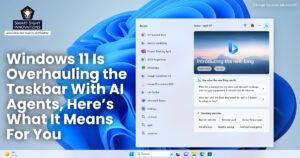 When it comes to the list of fundamental components for any given business, the company’s mobile application makes it in the top five. Due to the rapidly expanding smartphone user base in developing and developed countries, a well-functioning mobile app has become a necessity. It can help in reinforcing the brand, improving customer loyalty, connecting with the consumers while they are on-the-go, and of course, to increase your brand’s visibility. Companies have the option to choose from off-the-shelf app theme or opt for custom app development. Here’re the advantages offered by the latter option.
When it comes to the list of fundamental components for any given business, the company’s mobile application makes it in the top five. Due to the rapidly expanding smartphone user base in developing and developed countries, a well-functioning mobile app has become a necessity. It can help in reinforcing the brand, improving customer loyalty, connecting with the consumers while they are on-the-go, and of course, to increase your brand’s visibility. Companies have the option to choose from off-the-shelf app theme or opt for custom app development. Here’re the advantages offered by the latter option.
Customization for easy navigation
To make the application user-friendly, the field entries and click buttons should be kept to a minimum. Most of the smartphone users prefer scrolling instead of clicking while using the app. Besides browsing, even the shopping cart section and the checkout process needs a personal touch. The user should be able to quickly put in numbers on the card payment screen or use the registered card details to save the time. All these options may not be available in ready-to-use software, but you can surely get the same with customized application.
Tailor made and lesser operational complications
No doubt, even off-the-shelf solutions offer multiple features. However, as these are designed to cater to a large crowd, the elements may not prove to be value for money for your brand. On the other hand, custom apps developed by a smartphone app development company are tailored to cater to your specific demands. You would pay precisely for what you ordered instead of paying the package cost for unnecessary features. Plus, ready-to-use application developers may charge you over and above for customer support, data import, software installation, etc.
Customization also cuts the need for the company’s IT team to perform irrelevant processes. The errors and complications would be few compared to the ones incurred while using off-the-shelf (licensing business) applications.
Guaranteed to integrate well
The application utilizes the company’s complete infrastructure, including the ERP, POS, and CRM. Point-to-point, ESB solutions, and Multipoint approach are the most preferred options to integrate the mobile app with other systems. The integration makes it easy for the application to perform diverse functions. Connecting these systems would ensure higher employee productivity and a better ROI for the organization.
As mobile app developers customize it to work with the organization’s existing software, you won’t have to worry about errors when it comes to its integration with other systems. The chances of hangs, crashes, and bugs are also reduced.
Exploiting the app’s vulnerabilities becomes difficult
The architecture details of the ready-made solution are not a closely guarded secret. Customer’s data often remains at risk. On the other hand, the specially designed software can be offered an enhanced security solution that’s exclusive to the app design’s vulnerabilities. The software’s architecture remains confidential. This makes it difficult for hackers to exploit the system. The added layer of security also increases consumer confidence while they make in-app purchases, card payments.
Improving the conversion rate
Every mobile application can deliver notifications right on the phone’s screen. A user would prefer to keep the notifications turned on if the messages are about discounts or even discount codes. Thus, sending messages about content or products based on individual interests can prove to be productive.
At times, users add something in their shopping cart while making an in-app purchase, and then abandon the order due to some reason or the other. In such a situation, sending an in-app message to the concerned consumer along with a discount code may help in increasing the sales conversion rate.
Stay ahead in the crowded marketplace
Until the last decade, custom applications were only developed and used as in-house tools by company employees. But now, brands use customization in customer-facing apps to stand apart in the crowd.
Customization does not require a significant budget investment due to the Android’s flexibility and simplified development process. However, a customized app can help you stay ahead and distinguished from competitors.
Offering rich experience is the need of the hour
There is no point in developing a smartphone application just because the competitors are doing the same. Thus, before starting the work on the software, companies must consider the benefits that they need to offer to the consumers via the app.
The application should be able to offer the kind of experience that is not available elsewhere. Only then, users would access it and keep it on their phone for more than 30 days. Customization helps in achieving just that.
Customization of the mobile application is the key when it comes to satisfying user-expectations. Both, Android and iOS platforms offer flexibility, but Android scores more when it comes to customizing the app to support multimedia tools and integration with other software. Due to this flexibility, big brands and even small startups can get the app software designed according to their needs with the help of a reputed application development company.














